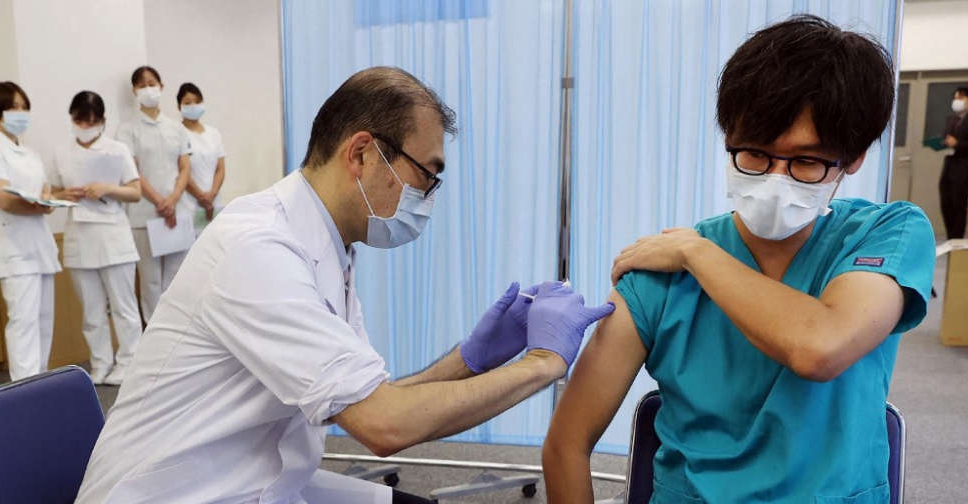
Japanese Prime Minister Fumio Kishida said he had spoken with the head of Pfizer Inc on Friday to secure oral treatments for COVID-19, and that vaccine boosters for the elderly would be accelerated as concerns swirl about variants.
Kishida told reporters he had arranged to secure two million doses of Pfizer's antiviral pill in a call with CEO Albert Bourla.
Japan will aim to get boosters to about 31 million healthcare workers and high-risk elderly people within six months from their initial inoculation instead of eight, Kishida said. From February, other elderly people will get boosters within seven months, he said.
Although COVID-19 cases have fallen dramatically since a deadly wave in August, there is growing concern about the Omicron variant, which has been found more than 30 times in Japan, mostly during airport screening and quarantine.
The Tokyo Metropolitan Government confirmed on Friday that a man in his 20s who had attended a soccer match near the capital was found positive for Omicron. A cluster of 70 coronavirus cases has been found at a U.S. military base in the southern island prefecture of Okinawa, local media reported.
Japan has contracted to receive 120 million doses of the Pfizer vaccine next year and had about 16 million in stock as of this month. On Thursday, the government officially approved Moderna Inc's COVID-19 vaccine for its booster programme, which has so far covered just 0.1 per cent of the population.
After a relatively late start, Japan has fully inoculated almost 80 per cent of its population, the highest among Group of Seven economies.
Health minister Shigeyuki Goto said last week that boosters should be given as soon as possible, instead of holding firm to an eight-month lag from the first two shots.

 UK inquiry finds 'chilling' cover-up of infected blood scandal
UK inquiry finds 'chilling' cover-up of infected blood scandal
 Iranian President Raisi killed in helicopter accident, state media says
Iranian President Raisi killed in helicopter accident, state media says
 ICC prosecutor seeks arrest warrants for Israeli, Hamas leaders
ICC prosecutor seeks arrest warrants for Israeli, Hamas leaders
 Assange given permission to appeal against US extradition
Assange given permission to appeal against US extradition
 Israel intends to broaden Rafah sweep, Defence Minister tells US
Israel intends to broaden Rafah sweep, Defence Minister tells US




